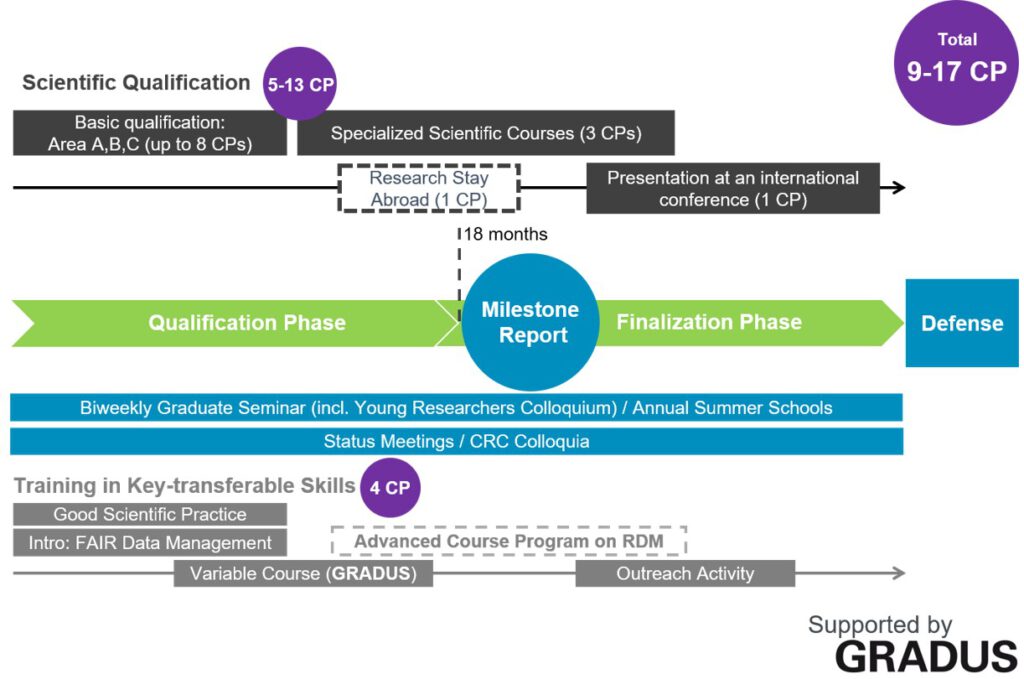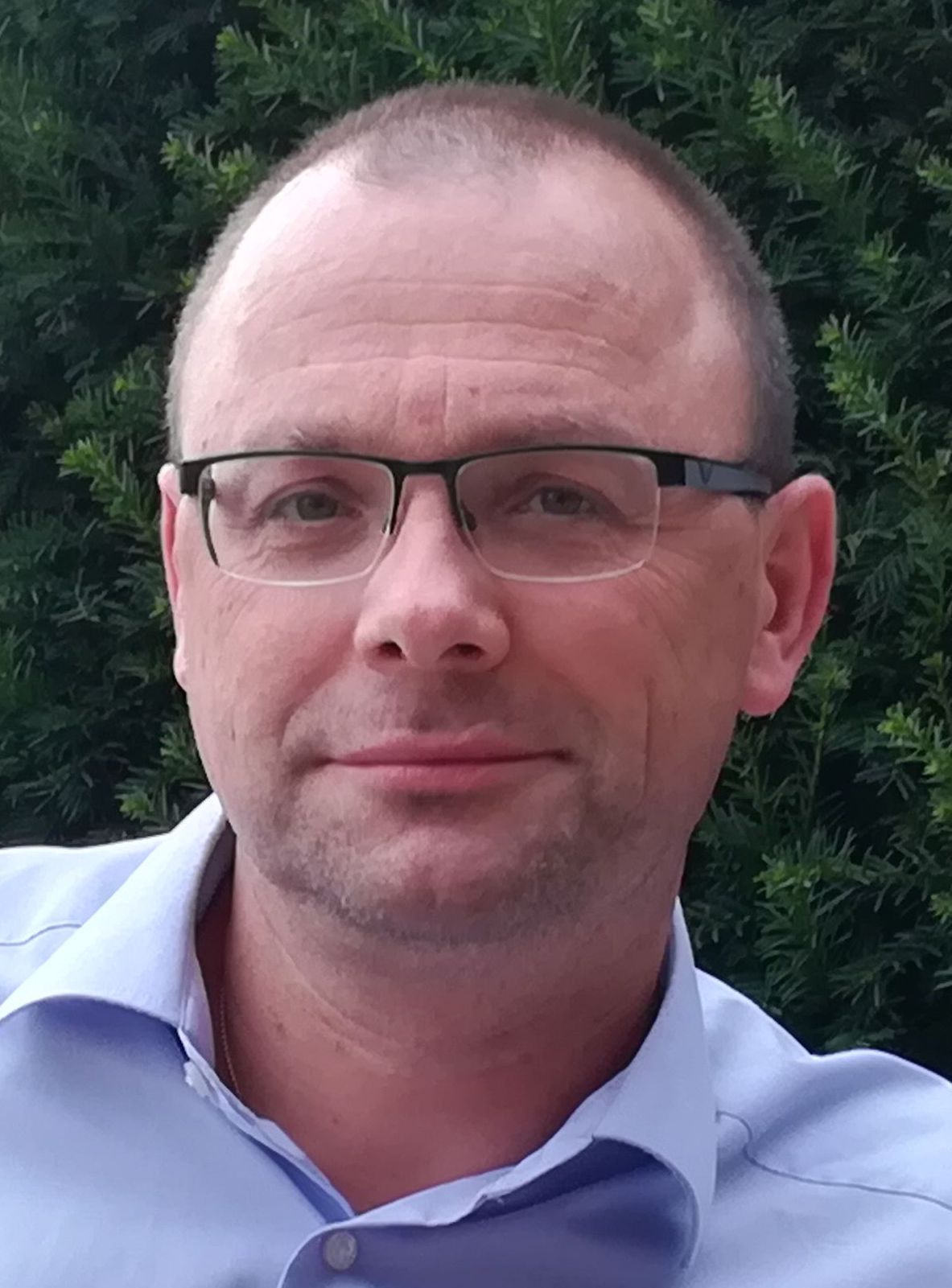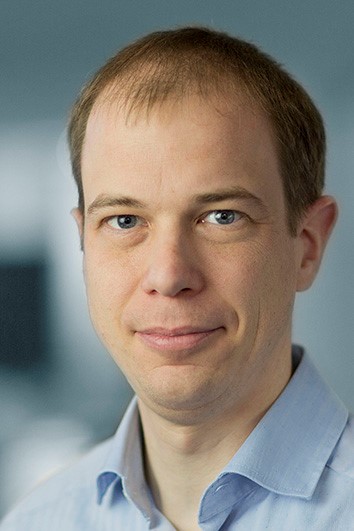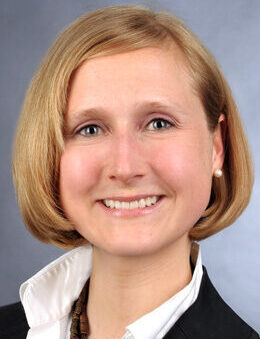Central Service 03
Integrated research training group (IRTG/ MGK)
CRC 1333 – Integrated Research Training Group: “Catalysis under confinement”
The CRC 1333 – Integrated Research Training Group “Catalysis under Confinement,” provides tailored support for our doctoral researchers. The aim of the CRC 1333 is to nurture global and integrative thinking, preparing students for prominent roles in science, business, and society.
The qualification program includes elements to
- enhance interdisciplinary understanding,
- offer key transferable skills courses,
- ensure structured collaboration,
- foster early scientific independence, and
- promote national and international exchange and networking.
All doctoral researchers in CRC 1333 projects are members of the Integrated Research Training Group, promoting scientific excellence and ensuring structured graduation. This approach facilitates timely completion of the graduation process and creates optimal conditions for scientific creativity.
Qualification Program of the CRC 1333
The CRC 1333’s qualification plan ensures that PhD students make internationally respected scientific contributions within the interdisciplinary framework, preparing them for leadership roles in diverse settings. The program includes:
Structured Support
Each doctoral researcher has an individual 2nd advisor as a CRC 1333 mentor, ideally from another research area for an interdisciplinary perspective. Scientific excellence is established through measures like the 18-month milestone presentation, facilitating discussion with the supervisor and CRC 1333 mentor to support doctoral success.
Structured Collaboration
Involvement in all CRC 1333 events for internal and external interdisciplinary exchange, including scientific lectures, bi-weekly Graduate Seminars, and annual Status Meetings and Summer School to discuss research progress and enhance networking.
Qualification in Key Transferable Skills
Access to a range of seminars and courses allowing doctoral students to enhance skills and engage with interdisciplinary topics, contributing to their overall qualification.
International Competencies
Graduates are expected to present their research at an international conference. Research stays abroad of up to 3 months are funded for the graduates.
Time Chart of a Dissertation in CRC 1333

Elements of the Graduate School
CRC 1333 Graduate Seminar
The bi-weekly Graduate Seminar, also known as the “Young Researchers Colloquium,” fosters regular interaction within the (post-)doctoral community. It serves as a platform for presenting the latest scientific results, and engaging in discussions with internal and external guests. Additionally, it provides a space for graduates to plan CRC 1333 outreach activities and the annual summer school.
CRC 1333 Summer School
The CRC 1333 Summer School takes place annually over three days, fostering intensive exchange and lively discussions. It enhances team spirit, leading to increased scientific collaboration. PhD students deliver lectures, visit labs and colleagues, and explore the chemical industry. Organized by doctoral representatives, it provides them with opportunities to learn responsibility and leadership skills.
Research stay abroad
The CRC 1333 supports PhD students in organizing research stays abroad related to their topics, which strengthens their independence. Such stays provide insights into diverse work environments and intercultural perspectives, yielding positive effects.
International visibility
The CRC 1333 ensures that all PhD students attend international conferences, thereby enhancing their visibility, scientific confidence, and communication skills. Conference participation provides an opportunity to build a broad scientific network, and students can publish in peer-reviewed journals to share their research findings.
Integrated Research Training
CRC 1333 encourages participation in a comprehensive training program that covers essential skills. At the University of Stuttgart, these include academic skills (e.g., writing papers, preparing presentations, grant writing), management skills (e.g., project and time management, leadership, interdisciplinary teamwork), career skills (e.g., self-marketing, networking, job application training), and interdisciplinary topics (e.g., science ethics, philosophy of science, technology assessment).
Gender- and diversity-sensitive mentoring
The Gender and Diversity Mentoring Program promotes networking across generations, disciplines, and institutions to mentor young researchers. It offers special events and courses for young female researchers, preparing and empowering them for their careers. Through the Woman in Science Career Talks, CRC 1333 aims to highlight accomplished female professors in our field as role models for aspiring young scientists.
CRC 1333 Colloquium Series
The CRC 1333 organizes a colloquium series with renowned national and international guests to promote the exchange within the scientific community. Lectures by renowned scientists in the fields of catalysis, materials science, and physical analysis enhance the interdisciplinary understanding of doctoral students. The CRC 1333 places a special emphasis on inviting female scientists and aims for a total of 40% female speakers.


